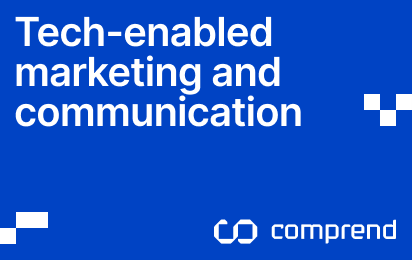
AN OPEN LETTER TO THE IIRC
 Following a roundtable discussion on 1 December 2011, Communicate magazine addresses this letter to the International Integrated Reporting Council, IIRC, in response to its Discussion Paper, Towards Integrated Reporting: Communicating Value in the 21st Century.
Following a roundtable discussion on 1 December 2011, Communicate magazine addresses this letter to the International Integrated Reporting Council, IIRC, in response to its Discussion Paper, Towards Integrated Reporting: Communicating Value in the 21st Century.
This discussion followed a survey by Communicate magazine and SAS on integrated reporting, the results of which were presented on 1 December, and which form part of the responses below.
The survey was completed by a broad range of FTSE100 and FTSE 250 companies, including over 30% of the FTSE100. We felt it was important to preserve anonymity. If companies wanted to raise their concerns on the Discussion Paper openly they would have done so. Many issuers felt uneasy at doing so.
We believe that action is needed on reporting. Our respondents took the view that financial reporting is now sufficient, but that the same rigour should be applied to non-financial reporting.
The issuer community feels that current reporting is regulated by vague guidance, which fails to provide “comparable, material metrics for analysts and regulators to consider in the domain of social capital and impairments to social capital.” However, several of the respondents to our survey believe that the action needed is not in the direction of more guidance, but should rather stem from companies changing their internal reporting processes.
Several of our contributors work in environments which maintain a separate reporting structure, but which also incorporate a section on CSR and environmental issues within the annual reports. We feel that reporting currently too often drifts away from focusing on specific objectives, and that this could be rectified by directly linking sections of integrated reporting to a company’s or department’s KPIs.
We believe that there should be more reference to the needs of the audience in coming up with a model for integrated reporting. Who is actually reading these reports? Our contributors believe that most people who receive annual reports in their current incarnations will glance through the main body of the report and concentrate on the financial sections. But in our online survey, there was a clear indication that it isn’t just investors who are reading annual reports.
Integrated reporting should target, according to our respondees, “ultimately all stakeholders who are affected by the business”. It was also suggested that although an integrated annual report should focus on investors, any other forms of corporate reporting should give equal weighting to all stakeholder audiences.
There is a general feeling that the audience make-up is moving on from just investors onto a wider concept of business stakeholders. This is where we believe online reporting has been important, and will continue to grow in importance.
Online resources can provide depth of information that shouldn’t be contained in a printed report (in order to keep it or reduce it to a manageable length). Enhanced cross-reference capabilities between online and offline platforms in integrated reporting will push organisations to bring their corporate websites up to scratch: we feel that currently boards are failing to consider why an organisation’s stakeholders might want to find its financial information online, and that legislating for this within an integrated reporting framework will drive take up.
A greater focus on online capabilities will also solve a problem that frequently crops up when discussing annual reports. The financial information contained in current annual reports is historic and based on short-term thinking. This hinders reporting from being able to give a full picture of a company’s potential future performance, and therefore does not serve the needs of prospective shareholders, who are another audience for integrated reporting to consider.
The opportunity to break out of the short-term cycle of reporting that the IIRC has is an important one, and cannot be wasted. As information consumption trends show that mobile access will overtake desktop access in the next 40 years, integrated reporting has the chance to help companies position themselves ahead of that curve by promoting the importance of cross-pollination between online and offline reporting, and of providing stakeholders with full information about an organisation according to their needs.
Another issue considered by our contributors was that of size. A framework for integrated reporting needs to be understanding of the discrepancies between organisations. Most companies in the FTSE250 won’t have dedicated teams that produce their reports, and time spent on corporate reporting is often viewed as a real and frustrating opportunity cost hindering other areas of the business.
However, when considering the worth of a company’s trust and reputation, rather than reporting being seen as an opportunity cost we believe it is in fact being under-resourced. Therefore, boards must be convinced of the good that integrated reporting can do. This can be achieved by showing that better-educated stakeholders lead to materially better results for a business.
Another key element to be considered in integrated reporting is where the burden falls. Expanding the role of reports through integrated reporting will go even further towards setting up the corporate report as a vital document in an organisation – but all too often, it seems the responsibility for this crucial document is given to its co-ordinators.
We believe that integrated reporting will only truly be successful when it stems from integrated thinking. Rather than the pressure to produce a report that encapsulates a company’s past achievements and future ambitions being placed on a team of communicators that isn’t influencing corporate decisions, pressure should be placed on boards to practise integrated thinking at every level of an organisation. When this is prevalent in a company’s culture, integrated reporting, and all the benefits it has the potential to bring to an organisation, will then be possible.


